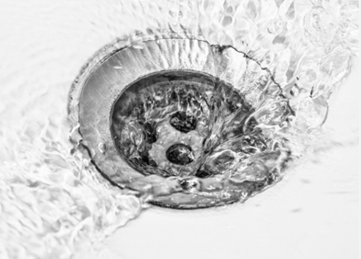A good drainage system in the shower is essential to prevent puddles, bad odours and damp problems. If your shower tray does not drain properly, you may encounter more serious problems over time. Here are some useful tips to ensure that your shower drains properly from day one:
1. Choose a shower tray with sufficient slope
The slope is key to ensuring that water flows towards the drain without stagnating. A sloped tray ensures that water is directed properly to the drain.
2. Make sure the drain is level
During installation, the trap and pipe must be correctly aligned and free of any unevenness that could hinder the flow of water. Check that the flow rate of the shower is similar to the flow rate of the waste valve. You should also minimise bends and avoid twists or constrictions in the pipe.
3. Keep the drain clean
Hair and soap scum can easily clog the drain. Clean the drain filter or grid regularly to prevent clogging and odours.
4. Avoid silicone build-up at the water outlet
In new installations, it is common for excess silicone or adhesive to accumulate near the drain. Check that it is not blocking the outlet.
5. Check the venting of the downpipe
An unvented downpipe can create a vacuum and cause water to drain more slowly. If you hear gurgling noises, the venting system is probably not working properly.
6. Check the length and slope of the pipes
If the distance between the shower tray and the drain is very long, make sure that the pipe has a constant slope (at least 2 cm per metre) so that the water flows smoothly.
7. Test after installation
Before closing any work or cladding, test the drain with plenty of water to make sure that everything is working properly and there are no leaks.

